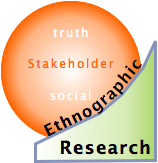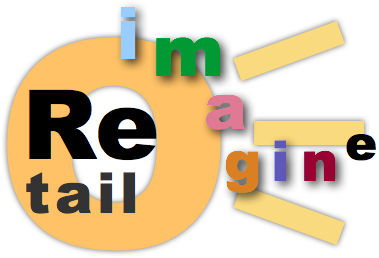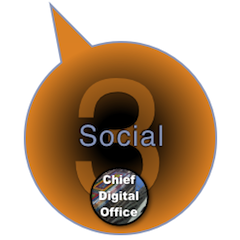 Ethnographic research for business innovation shows how to apply ethnographic research of social media to managing controlled disruption within organizations. Ethnographic research of social media can transform the entire innovation process because it’s a very efficient way to study the behavior and motivations of the people that the innovation proposes to serve. Unlike traditional innovation and ethnographic research methods, which are relatively slow, costly and qualitative, ethnographic research of social media combines qualitative richness with quantitative analysis. It’s faster and less costly, too. Ethnographic research for business innovation shows how to apply ethnographic research of social media to managing controlled disruption within organizations. Ethnographic research of social media can transform the entire innovation process because it’s a very efficient way to study the behavior and motivations of the people that the innovation proposes to serve. Unlike traditional innovation and ethnographic research methods, which are relatively slow, costly and qualitative, ethnographic research of social media combines qualitative richness with quantitative analysis. It’s faster and less costly, too.
Ethnographic research for business innovation can dramatically improve the depth and breadth of business and corporate strategy, business design and service design research since it allows teams to consider more users and to assess their behavior and motivations, which can improve the value of more costly research.
This post outlines the business innovation use case of ethnographic research of social media, and it includes examples in banking, professional services, consumer products, and B2B marketing. For more on ethnographic research, see More Resources below.
[…]
 Ethnographic research for product management shows how to apply ethnographic research of social media to managing the life cycle of products and services. Ethnographic research of social media can revolutionize product management because it’s a very efficient way to study people’s behavior and motivations in each part of the product life cycle. Unlike traditional product and ethnographic research methods, which are relatively slow, costly and qualitative, ethnographic research of social media combines qualitative richness with quantitative analysis. It’s faster and less costly, too. Ethnographic research for product management shows how to apply ethnographic research of social media to managing the life cycle of products and services. Ethnographic research of social media can revolutionize product management because it’s a very efficient way to study people’s behavior and motivations in each part of the product life cycle. Unlike traditional product and ethnographic research methods, which are relatively slow, costly and qualitative, ethnographic research of social media combines qualitative richness with quantitative analysis. It’s faster and less costly, too.
This post outlines the product management use case of ethnographic research of social media. For more on ethnographic research, see its executive summary.
[…]
 [Updated] Ethnographic research of social media is one of my biggest secrets. It has become the foundation of CSRA’s ability to create trust at scale, so here I’ll share how I came to use it with social media. Then I’ll explain what ethnographic research is, why it’s vital to CSRA, and how it works, so you can use it. Finally, I’ll share use cases for experiential social media, product management, business innovation, and cross-border business. [Updated] Ethnographic research of social media is one of my biggest secrets. It has become the foundation of CSRA’s ability to create trust at scale, so here I’ll share how I came to use it with social media. Then I’ll explain what ethnographic research is, why it’s vital to CSRA, and how it works, so you can use it. Finally, I’ll share use cases for experiential social media, product management, business innovation, and cross-border business.
[…]
 [UPDATED] The Future of the Retail Store in the Omni-Channel Age is third in CSRA’s retail & omni-channel series, and it is especially relevant to Chief Digital Officers, who orchestrate profound organization change using digital technologies and processes. It also offers rare opportunity to high-stakes CMOs. Part1 of The Future of the Retail Store outlines several aspects of market disruption that are affecting retailers as a group, albeit by varying degrees. Part2 features examples of “reimagining retail” for mobile, banking, grocery, hardware and apparel “stores.” [UPDATED] The Future of the Retail Store in the Omni-Channel Age is third in CSRA’s retail & omni-channel series, and it is especially relevant to Chief Digital Officers, who orchestrate profound organization change using digital technologies and processes. It also offers rare opportunity to high-stakes CMOs. Part1 of The Future of the Retail Store outlines several aspects of market disruption that are affecting retailers as a group, albeit by varying degrees. Part2 features examples of “reimagining retail” for mobile, banking, grocery, hardware and apparel “stores.”
“Future” provides practical examples for the main thesis carried through the series: retailers can thrive by thinking beyond “the product” and its selection, assortment, pricing, etc., because these have a decreasing impact on revenue and profit. Digital social enables customers and retailers to focus on how customers create value with products and services, so when properly used, social is a strong profit driver, and profits are what retailers need to survive and thrive. As examples illustrate, retailers can go with the “showrooming” trend by enabling customers to imagine […]
7 Social Business Transformation Tools provides digital executives the vital tools of online engagement, from the Social Business Life Cycle and Social Business Strategy Use Cases to the report that ranks social business advisory firms in their ability to help firms transform.

7 Social Business Transformation Tools is Part3 of the CDO Guide to Social Business for Transformation. The tools it describes encapsulate thousands of hours of hands-on experience with strategy and in-the-trenches execution work with global brands, and they explicitly address the ins and outs of people, process and technology. Part3 includes links to tools’ full versions, so CDOs can use it as a dashboard.
The Guide to Social Business for Digital Transformation helps Chief Digital Officers to understand and act on rapidly improving stakeholder relationships, productivity and business performance. The Social Business Competency Center has even more resources. The Chief Digital Office has other competency centers in Mobile, Big Data & Analytics and Ecommerce.
[…]
 [UPDATED] Social business strategy use cases represent scenarios in which most organizations find themselves, and they reflect some of the choices of which CDOs, CMOs and CEOs may use as they plan to evolve their enterprises in order to either improve returns or simply remain relevant in volatile markets. [UPDATED] Social business strategy use cases represent scenarios in which most organizations find themselves, and they reflect some of the choices of which CDOs, CMOs and CEOs may use as they plan to evolve their enterprises in order to either improve returns or simply remain relevant in volatile markets.
Social business strategy is inherently transformational to large organizations whether they are in commercial, nonprofit or government sectors. All organizations are hives of people communicating and collaborating to execute business processes (“work”). Digital social technologies have reduced the cost of communication (and therefore much collaboration and work) by an order of magnitude (roughly ten times). Collaboration and innovation, before digital social technologies, were slow and expensive. Now they are very fast and inexpensive—when organizations learn how to use them. Organizations that learn how are more responsive to their constituents and customers, so the market rewards them—and will increasingly punish those that lag too far.
These use cases focus on building enterprise social business internal capability, and they are also helpful to consider when selecting social business advisors. Please […]
|
|
 Ethnographic research for business innovation shows how to apply ethnographic research of social media to managing controlled disruption within organizations. Ethnographic research of social media can transform the entire innovation process because it’s a very efficient way to study the behavior and motivations of the people that the innovation proposes to serve. Unlike traditional innovation and ethnographic research methods, which are relatively slow, costly and qualitative, ethnographic research of social media combines qualitative richness with quantitative analysis. It’s faster and less costly, too.
Ethnographic research for business innovation shows how to apply ethnographic research of social media to managing controlled disruption within organizations. Ethnographic research of social media can transform the entire innovation process because it’s a very efficient way to study the behavior and motivations of the people that the innovation proposes to serve. Unlike traditional innovation and ethnographic research methods, which are relatively slow, costly and qualitative, ethnographic research of social media combines qualitative richness with quantitative analysis. It’s faster and less costly, too.
 Ethnographic research for product management shows how to apply ethnographic research of social media to managing the life cycle of products and services. Ethnographic research of social media can revolutionize product management because it’s a very efficient way to study people’s behavior and motivations in each part of the product life cycle. Unlike traditional product and ethnographic research methods, which are relatively slow, costly and qualitative, ethnographic research of social media combines qualitative richness with quantitative analysis. It’s faster and less costly, too.
Ethnographic research for product management shows how to apply ethnographic research of social media to managing the life cycle of products and services. Ethnographic research of social media can revolutionize product management because it’s a very efficient way to study people’s behavior and motivations in each part of the product life cycle. Unlike traditional product and ethnographic research methods, which are relatively slow, costly and qualitative, ethnographic research of social media combines qualitative richness with quantitative analysis. It’s faster and less costly, too. [Updated] Ethnographic research of social media is one of my biggest secrets. It has become the foundation of CSRA’s ability to create trust at scale, so here I’ll share how I came to use it with social media. Then I’ll explain what ethnographic research is, why it’s vital to CSRA, and how it works, so you can use it. Finally, I’ll share use cases for experiential social media, product management, business innovation, and cross-border business.
[Updated] Ethnographic research of social media is one of my biggest secrets. It has become the foundation of CSRA’s ability to create trust at scale, so here I’ll share how I came to use it with social media. Then I’ll explain what ethnographic research is, why it’s vital to CSRA, and how it works, so you can use it. Finally, I’ll share use cases for experiential social media, product management, business innovation, and cross-border business. [UPDATED] The Future of the Retail Store in the Omni-Channel Age is third in CSRA’s retail & omni-channel series, and it is especially relevant to Chief Digital Officers, who orchestrate profound organization change using digital technologies and processes. It also offers rare opportunity to high-stakes CMOs. Part1 of The Future of the Retail Store outlines several aspects of market disruption that are affecting retailers as a group, albeit by varying degrees. Part2 features examples of “reimagining retail” for mobile, banking, grocery, hardware and apparel “stores.”
[UPDATED] The Future of the Retail Store in the Omni-Channel Age is third in CSRA’s retail & omni-channel series, and it is especially relevant to Chief Digital Officers, who orchestrate profound organization change using digital technologies and processes. It also offers rare opportunity to high-stakes CMOs. Part1 of The Future of the Retail Store outlines several aspects of market disruption that are affecting retailers as a group, albeit by varying degrees. Part2 features examples of “reimagining retail” for mobile, banking, grocery, hardware and apparel “stores.”
 [UPDATED] Social business strategy use cases represent scenarios in which most organizations find themselves, and they reflect some of the choices of which CDOs, CMOs and CEOs may use as they plan to evolve their enterprises in order to either improve returns or simply remain relevant in volatile markets.
[UPDATED] Social business strategy use cases represent scenarios in which most organizations find themselves, and they reflect some of the choices of which CDOs, CMOs and CEOs may use as they plan to evolve their enterprises in order to either improve returns or simply remain relevant in volatile markets.